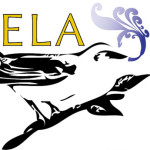
Despite the fact that most linguistic field work is done in remote places, the ELA is based in New York, and helps people in urban areas to document, describe, and educate a larger public about endangered languages. As more of the world’s languages become marginalized in their places of origin, speakers of endangered languages have found solace in urban communities. Few city-dwellers fully recognize the substantial linguistic and cultural diversity all around them. Melting pots like New York are home to hundreds of endangered minority languages, from the Otomanguean languages of Mexico to the Nilo-Saharan languages of Sudan and everywhere between. Religious liturgies, native-language literatures, ethnic newspapers, and radio stations quietly struggle and flourish.
The founder and Executive Director of the ELA, Daniel Kaufman, argues that, “Every language carries with it immense reserves of cultural, historical, ecological and botanical information, vital for local communities and potentially to the broader world. In much of the world, languages are central to communal identity and multilingualism has been the historical norm. Ken Hale, an MIT professor and language activist once said that losing any one language is like dropping a bomb on the Louvre.”






